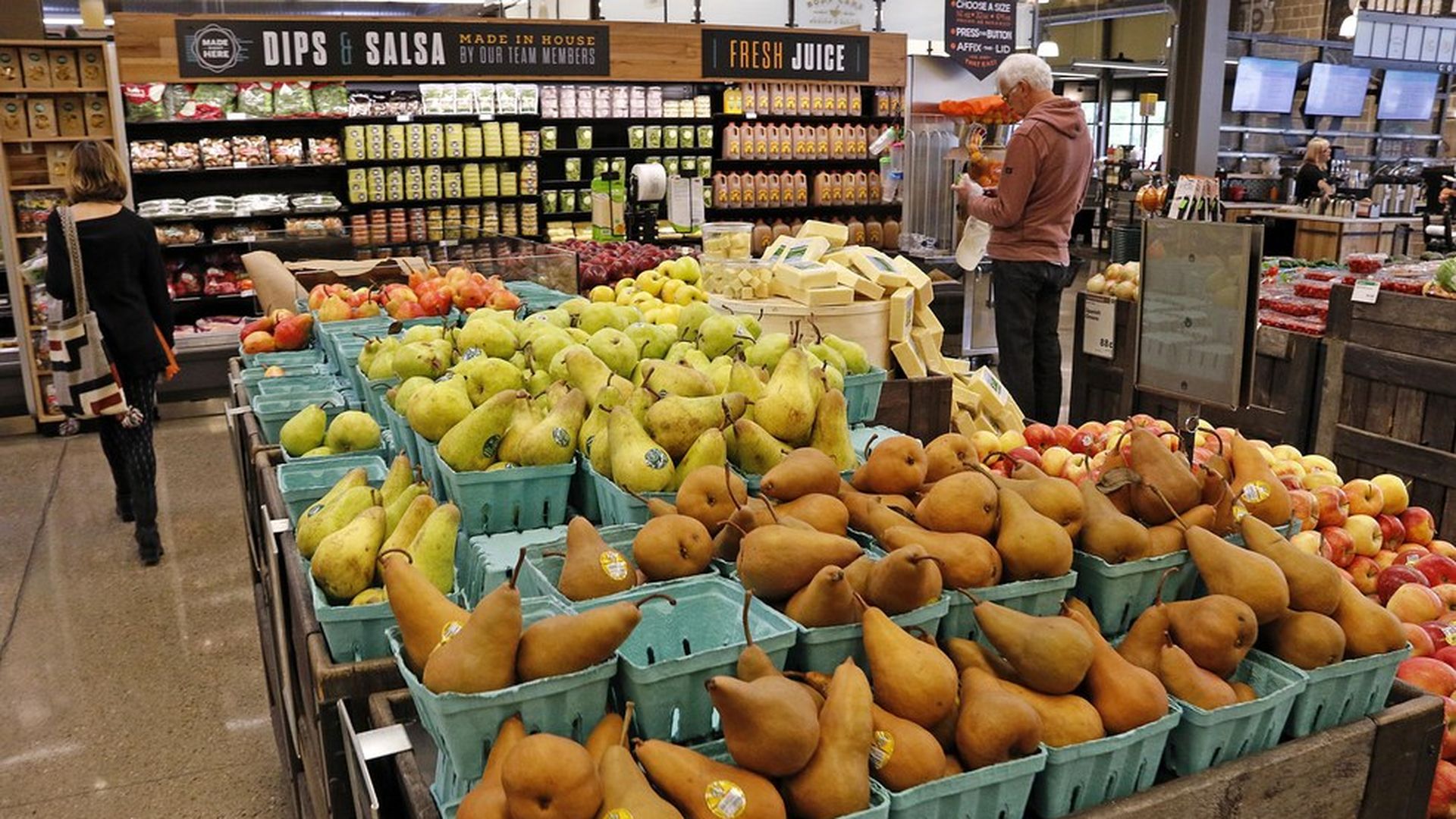Amazon has scared grocers — and others — the world over
Add Axios as your preferred source to
see more of our stories on Google.

In the 1970s, oil behemoths, then kings of the corporate world, bought up department stores, beef canners and even the Barnum and Bailey Circus. But is it now the turn of the big five U.S. tech companies to snap up some economic prizes?
What was most surprising about Amazon's stunning $13 billion acquisition of Whole Foods last week was its juxtaposition with CEO Jeff Bezos' years of denunciations — and destruction — of brick-and-mortar retail chains. And people sense it may signal the front end of a wave of legacy sector acquisitions:
- We already have Silicon Valley moving in on Detroit's turf, creating a tense contest for who will dominate self-driving transportation.
- But to the degree the Whole Foods acquisition is not an anomaly, don't look for the tech giants to mimic the oil companies of yore, and venture far from their core businesses.
- Amazon is also unlikely to conduct a massive firing of workers, which would undermine the Whole Foods brand.
What seems informative is Bezos's 2013 acquisition of the Washington Post, which met immediate consternation that he would strip the paper to make it more profitable. Instead, he poured cash in, and the paper is turning out some of its best journalism in years.
Be smart: That's why it seems best to ignore forecasts that Amazon will dramatically change Whole Foods culture, its fare, and operating style. Instead, he will want to embrace Whole Foods high-end quality brand, and hope it washes over onto cut-rate Amazon reputation.
Capgemini's Shannon Warner, a retail consultant, tells Axios that Bezos will likely use Whole Foods to figure out how to make grocery shopping feel like less of a chore. If he can crack that problem, she said, "people will embrace it overnight." And that will be a critical moment for other grocery chains, which "waited too long and no longer have the capital to invest and survive."
